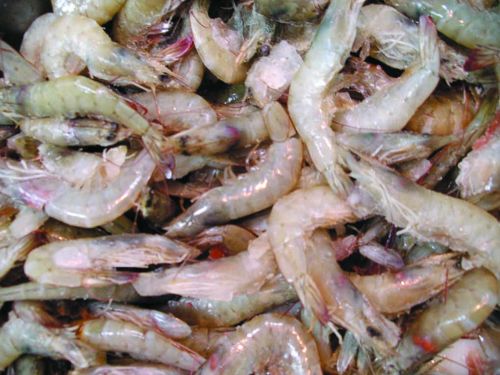
TRMC makes it 3 in a row
August 20, 2013Newsmakers
August 20, 2013Tariffs against some overseas shrimp from nations accused of inappropriately subsidizing their production came a step closer to reality last week.
The U.S. Department of Commerce determined that shrimp from Malaysia, China, Ecuador, India and Vietnam are produced in a manner contrary to U.S. trade rules, with levels of subsidy ranging from 5 to 55 percent.
Shrimp processors, who brought the trade action resulting in the determination, allege that those subsidies result in artificially low prices for the foreign product, resulting in lower dockside prices in the U.S. that are paid to fishermen, and lower profit margins for the processors themselves who compete with the overseas shrimp.
While news of the decision was well-received in the U.S. industry as a whole, there were concerns during the hearing process, which occurred in Washington DC, expressed by some fishermen and their allies.
The action was brought by an umbrella organization created by processors called the Coalition of Gulf Shrimp Industries (COGSI).
Because processors brought the trade action exclusively by themselves, defining the U.S. shrimp industry in a way that excluded fishermen, some of the harvesters feared that they might be left out of the running if certain settlements were made with countries that would result in cash payments rather than fines.
Trade experts said, however, that any settlement money would go into the U.S. treasury rather than to independent businesses.
Industry voices concerned about that potential said they then feared current U.S. law could be changed so that would no longer be the case.
But there are no indications so far that it would come to be.
Lt. Gov. Jay Dardenne, who testified before the committee and expressed concern for both processors and shrimpers, was among the recipients of an unsigned letter mailed to officials from “Louisiana Shrimp Fishermen” expressing distrust for COGSI.
“COGSI is a rogue group of shrimp processors, nine from Louisiana, who do not represent the interests of the Louisiana shrimp industry. In fact, they have filed hundreds of pages of documents in which they seek to exclude Louisiana shrimp fisherman from this investigation,” the letter states. “Make no mistake, if these countries are engaging in unfair trade, shrimp fisherman, not processors, suffer the most harm. Shrimp fisherman vastly outnumber this small group of self-interested processors.”
Neither Dardenne nor other officials who testified were asked to define the industry, and whether it included fishermen or not.
The caveat, in the opinion of some fishermen, thus became moot.
David Veal, Executive Director of COGSI, said he was grateful for the strong support of elected officials for the trade action.
“They assisted us with testimony and letters that made a difference by showing the importance of shrimp to the economic and cultural well-being of the Gulf region,” said Edward T. Hayes, Gulf Counsel for COGSI.
Dardenne, along with State Rep. Joe Harrison R-Napoleonville were among local leaders COGSI especially wanted to thank.
“It was impressive that they traveled to Washington, D.C. to assist the shrimp community in their states and across the Gulf,” said Veal.
The next step is for the International Trade Commission to decide on the amount of damage done the U.S. industry by the illegal subsidies.
“Step by step we are making progress in obtaining relief for the American shrimp industry. I am pleased with the results today and look forward to the ITC vote in September,” said Elizabeth Drake, Partner at Stewart and Stewart and lead attorney in the case.
Sen. Mary Landrieu, D-La, was among public officials who delivered an opinion to the board that heard the matter, expressing concern for both shrimp fishers and processors if tariffs were not imposed.
“Today, we have the opportunity to throw a life jacket to our American shrimp industry which may otherwise drown,” Landrieu told the Commerce Department in her statement. “To impose countervailing duties on these countries’ shrimp imports is to level the playing field, to support free and fair market conditions, and to provide the U.S. shrimp industry with a chance to once again flourish. If we don’t stop unfair import competition, we will end up driving hard-working entrepreneurs out of this business and depriving one of America’s cherished cultures of an industry that has flourished for generations.”
Shrimp sit on ice after being caught in offshore waters. The U.S. Department of Commerce determined that shrimp from Malaysia, China, Ecuador, India and Vietnam are produced in a matter contrary to U.S. trade rules – a good bit of news for local trawlers.











